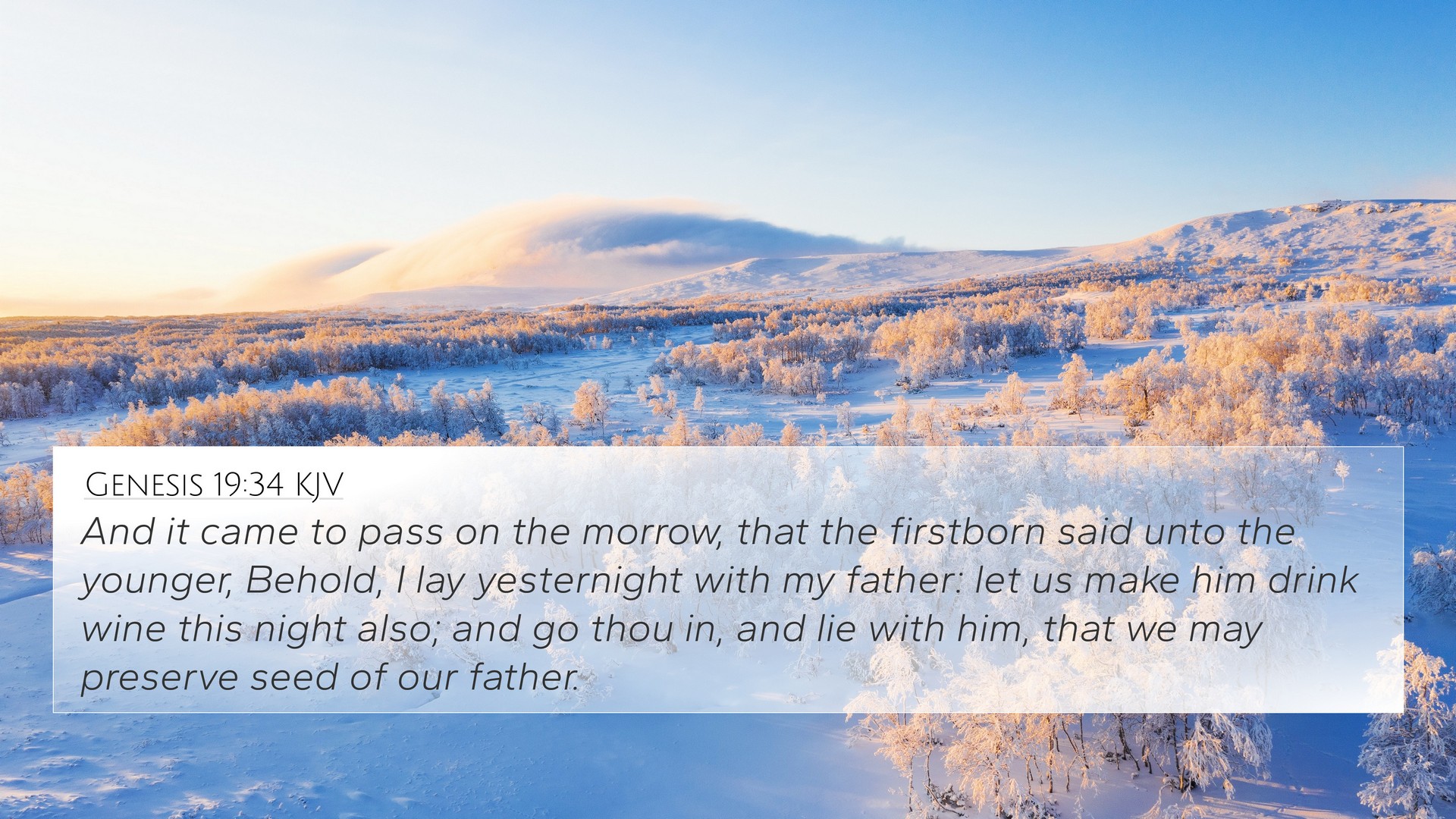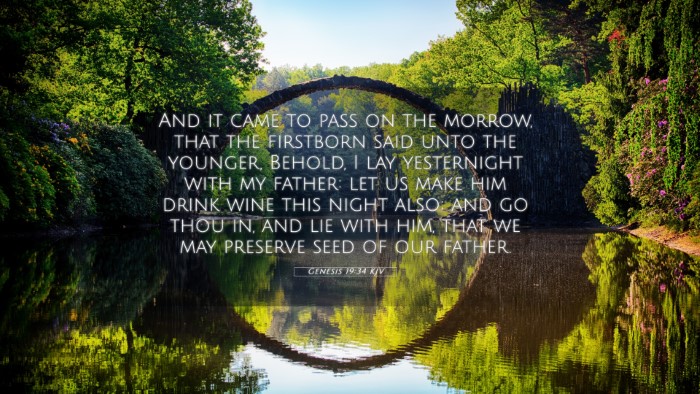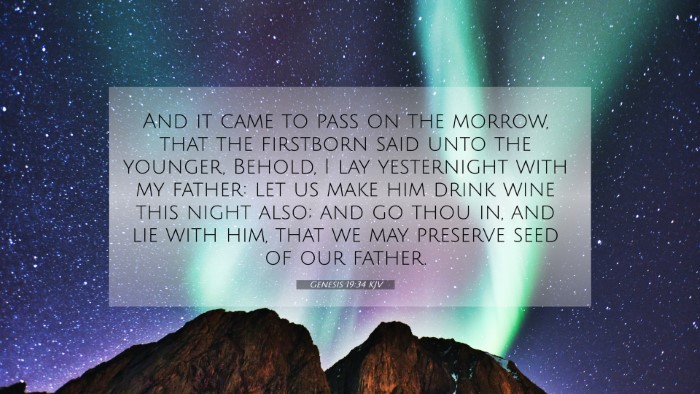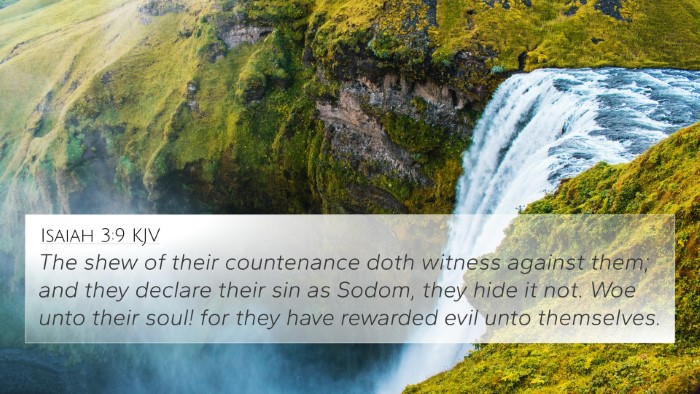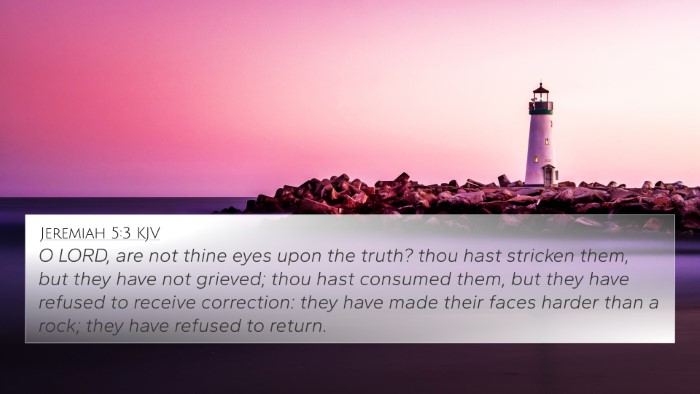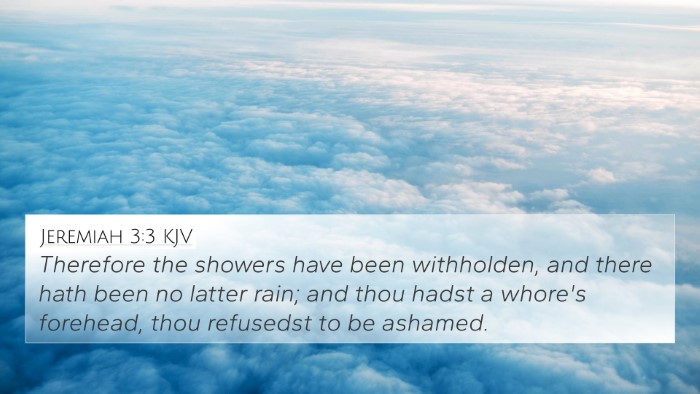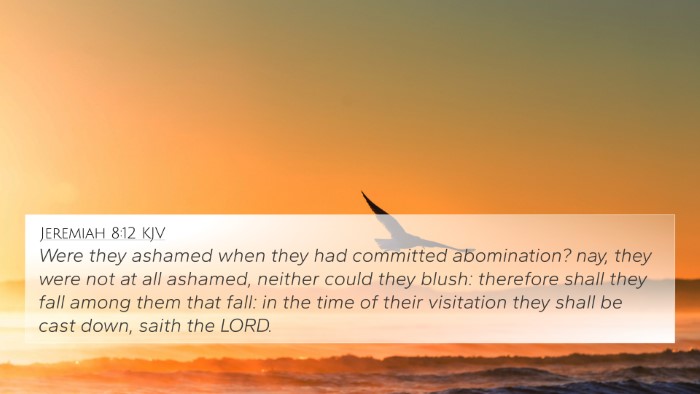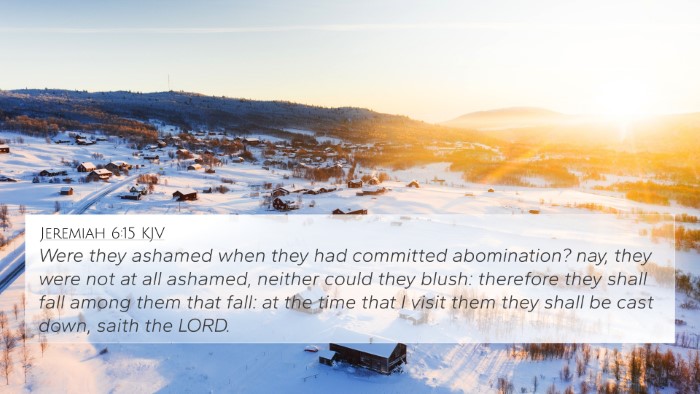Understanding Genesis 19:34
Verse: Genesis 19:34 - “But on the following day, the firstborn said to the younger, ‘Behold, I slept with my father last night; let us make him drink wine again tonight also; and you go in and lie with him, that we may preserve our family through our father.’”
Summary of Meaning
This verse is situated within the narrative of Lot and his daughters, following the destruction of Sodom and Gomorrah. After the catastrophic events, the two daughters, convinced that their family line was in jeopardy, resort to deceitful means to procreate with their father. This desperate act reflects themes of incest, survival, and the moral complexities of human actions under duress.
Commentary Insights
-
Matthew Henry:
Henry emphasizes the depravity and the tragic circumstances that drove the daughters to such desperate measures. Their actions demonstrate a low point in moral judgment, showcasing the consequences of living amidst a wicked society. It further illustrates the disintegration of traditional family structures and ethical boundaries, resulting from the trauma they have experienced.
-
Albert Barnes:
Barnes notes the significance of wine in this narrative, connecting it to the larger context of drunkenness leading to moral failure. The daughters' actions symbolize a loss of hope and the extremes to which individuals may go when they believe they are the last of their lineage, raising questions about the morality that governs our choices when we act out of fear.
-
Adam Clarke:
Clarke delves into the psychological aspects of the daughters’ motivations, suggesting that their isolation and perceived abandonment by God led to their misdeeds. He discusses the idea of preservation of the family name and the tragic lengths to which they would go to achieve what they believed was necessary in the absence of male heirs.
Bible Verse Cross-References
This verse can be related to several other Scriptures that explore similar themes of desperation, moral failing, and the complexities of human relationships:
- Genesis 19:31: Discusses the daughters’ fear of remaining childless.
- Leviticus 18:6-18: Outlines laws against incest, shedding light on the gravity of the daughters’ actions.
- Proverbs 20:1: Warns about the dangers of wine, linking it to the causes of their actions.
- Romans 1:28-32: Describes a society where God gives people over to their sinful desires, paralleling the moral decline in the narrative of Lot.
- Hebrews 11:31: Mentions Rahab's faith and contrasts it to the lack of faith shown by Lot's family.
- Jeremiah 51:8: Uses the destruction of cities as a metaphor for the consequences of sin.
- 1 Corinthians 10:12-13: Addresses the necessity of vigilance against sin, relevant to the decisions made by Lot's daughters.
Thematic Connections
Genesis 19:34 is critical for understanding the broader narrative of God’s judgment, mercy, and human fallibility. The themes of:
- Desperation: The daughters' actions stem from a place of hopelessness.
- Moral Breakdown: This story exemplifies the moral failures arising from poor choices.
- Divine Sovereignty: Even in the circumstances leading to sin, God's overarching plan continues to unfold.
Comparative Bible Verse Analysis
By conducting a comparative analysis with other scripture references, one can see the persistent themes of:
- Risking Ethics in Crisis: Various passages highlight the moral dilemmas faced during trying times.
- Family Dynamics: The influence of family and societal structures in shaping moral choices is evident in both this narrative and others like Rahab’s story in Joshua 2.
Conclusion
Genesis 19:34 is more than just a story of desperation; it serves as a sobering reminder of the potential for moral decay when one drifts far from divine principles. It opens avenues for discussions on how to navigate ethical challenges in contemporary society by examining cross-references and the layers of meaning woven through biblical texts.
